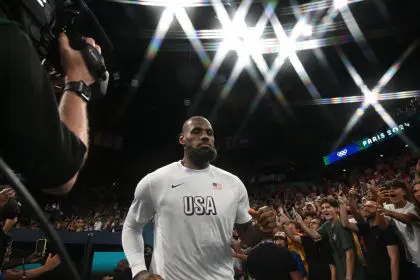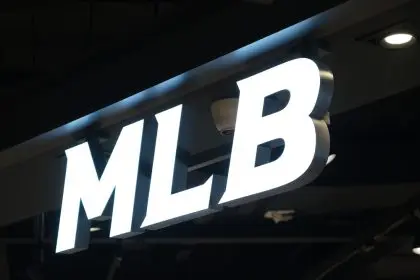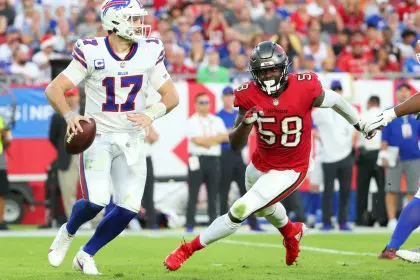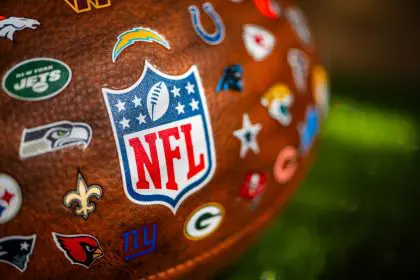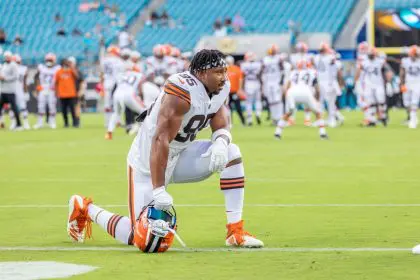When you own two major league sports franchises, the last thing you want is to be dragged into court to answer questions about how someone got shot at your ballpark. But that’s exactly the situation Jerry Reinsdorf finds himself in, and it’s about to get very uncomfortable for the Chicago White Sox and Bulls owner.
A Cook County judge just ordered Reinsdorf to sit for a deposition in a lawsuit stemming from a mysterious shooting that happened during a White Sox game in August 2023. Nearly two years later, nobody seems to have clear answers about how a weapon made it past security at Guaranteed Rate Field, and now Reinsdorf is going to have to explain what went wrong under oath.
This isn’t just some minor legal headache that’ll disappear with a quiet settlement. We’re talking about a shooting that injured two women during what should have been a safe family entertainment experience. When fans can’t feel secure at a baseball game, that’s a problem that goes way beyond bad publicity.
The incident that changed everything
Picture this nightmare scenario: You’re at a baseball game, maybe getting ready to enjoy a postgame concert, when suddenly chaos erupts around you. That’s what happened on August 25, 2023, when a 42-year-old woman was shot in the leg and a 26-year-old woman suffered a graze wound to her abdomen during the White Sox game against the Oakland Athletics.
The whole thing was absolutely surreal. Videos posted on social media showed panicked fans running away from the stadium while others were still waiting around for a Vanilla Ice concert that was supposed to happen after the game. Talk about mixed signals – some people are fleeing in terror while others are hanging around expecting to hear “Ice Ice Baby” performed live.
The concert ended up getting canceled due to what officials called “technical issues,” though you have to wonder if the shooting had something to do with that decision. Nothing kills the party atmosphere quite like gunshots in a crowded stadium, even if the show must theoretically go on.
What makes this whole situation even more bizarre is that the baseball game itself continued despite the shooting. The White Sox went on to lose 12-4 to the Athletics, which means players kept playing and fans kept watching while two women were dealing with gunshot wounds somewhere in the facility. That’s either incredible professionalism or a seriously misplaced sense of priorities.
Security questions that demand answers
Here’s where things get really interesting from a legal standpoint. Guaranteed Rate Field has strict weapons policies that explicitly prohibit any type of weapon from entering the facility. We’re talking about rules that ban everything from firearms to pepper spray, with clear language stating that it’s illegal to enter or attempt to enter the ballpark with any weapon regardless of permits.
The ballpark also has metal detectors that fans have to pass through before entering the stadium. So how exactly did someone manage to get a gun past all these security measures? That’s probably the million-dollar question that Reinsdorf is going to have to address during his deposition.
Either the security systems failed spectacularly, or someone found a way to circumvent them entirely. Neither scenario looks good for the White Sox organization, and both raise serious questions about whether the team was doing enough to protect its customers.
The 42-year-old victim who filed the lawsuit is accusing the team of negligence and recklessness, which suggests she believes the White Sox didn’t meet their basic duty to provide a reasonably safe environment for fans. If that allegation holds up in court, it could cost the organization significantly more than just legal fees and settlement money.
Reinsdorf’s uncomfortable position
Jerry Reinsdorf isn’t just any team owner – he’s been running the White Sox since 1981 and the Bulls since 1985, making him one of the most experienced franchise owners in professional sports. He’s seen it all during his decades in the business, but this situation is probably unlike anything he’s dealt with before.
Getting deposed in a shooting lawsuit means Reinsdorf will have to answer detailed questions about stadium security policies, safety procedures, and potentially any communications he had with staff about the incident. Lawyers representing the shooting victim will get to grill him about what he knew, when he knew it, and what actions he took in response.
These depositions aren’t casual conversations – they’re formal legal proceedings where every word matters and can be used as evidence in court. Reinsdorf will be under oath, which means any misleading statements or convenient memory lapses could create additional legal problems down the road.
The timing of this deposition also creates some interesting dynamics. Nearly two years have passed since the shooting, which means Reinsdorf has had plenty of time to think about what happened and how his legal team wants to handle the situation. But it also means the incident has been hanging over the organization for almost two full seasons.
Broader implications for stadium security
This lawsuit could have ramifications that extend far beyond just the White Sox organization. If the case reveals significant security failures at Guaranteed Rate Field, it might prompt other stadiums to reevaluate their own safety protocols and procedures.
Professional sports venues have been dealing with increased security concerns for years, especially after various incidents at stadiums and arenas around the country. The challenge is balancing fan safety with the kind of welcoming, accessible atmosphere that makes attending games enjoyable.
Metal detectors and weapons policies are standard at most major league venues, but this incident suggests those measures might not be foolproof. If someone can still get a weapon into a stadium despite multiple security layers, that’s a problem every franchise owner should be thinking about.
The legal discovery process in this case could also reveal internal communications and documents that shed light on how the White Sox handled the incident. Were there immediate changes to security procedures? Did the organization conduct its own investigation? Those details could influence how other teams approach similar situations.
What this means moving forward
The 42-year-old victim’s decision to file this lawsuit and push for Reinsdorf’s deposition suggests she’s serious about holding the organization accountable for what happened. This isn’t someone looking for a quick settlement – this is someone who wants answers and is willing to take the case all the way through the legal system if necessary.
For Reinsdorf and the White Sox, this situation represents a significant reputational and financial risk. Even if they ultimately win the case, the process of defending against these allegations will likely be expensive and time-consuming. The negative publicity alone could affect attendance and fan loyalty.
The mystery surrounding how the shooting happened in the first place makes this case particularly challenging to defend. Without clear explanations for how security was breached, the organization is left trying to prove a negative – that they weren’t negligent despite the fact that someone got shot at their facility.
This deposition could be the moment when we finally get some concrete answers about what went wrong that night in August 2023. Whether those answers help or hurt the White Sox organization remains to be seen, but one thing’s for sure – Jerry Reinsdorf is going to have to explain exactly what happened on his watch, and that conversation is going to be anything but comfortable.


